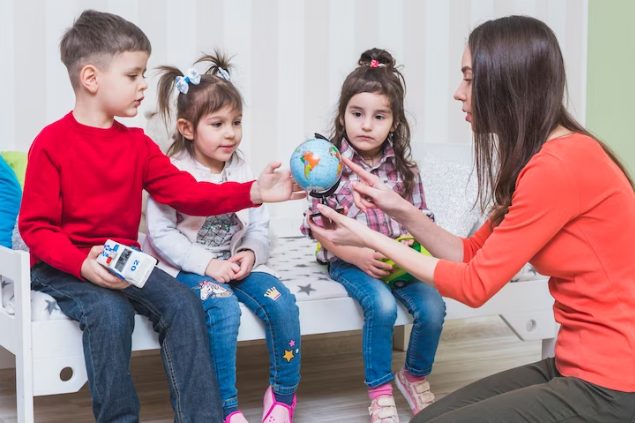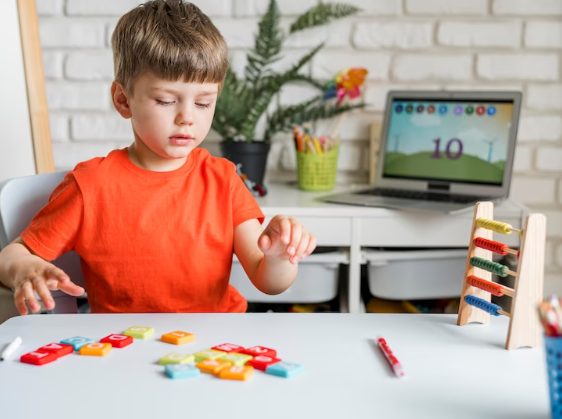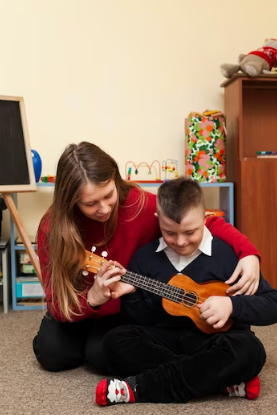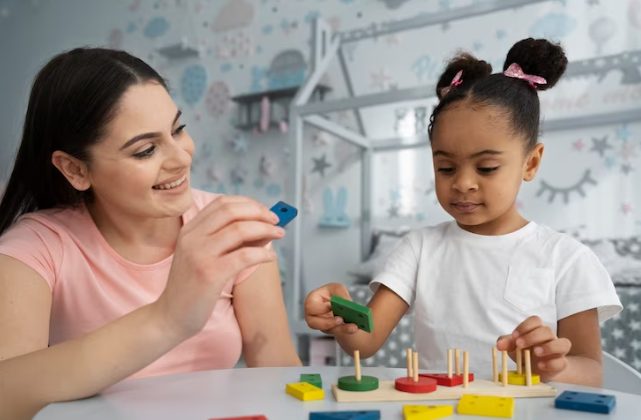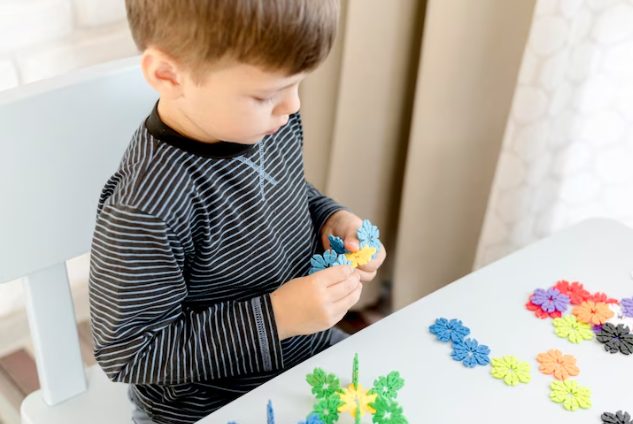
ABA therapy, short for applied behavior analysis, stands as an evidence-based approach of utmost importance for children with autism spectrum disorder (ASD). Rooted in extensive research and supported by strong empirical evidence, ABA therapy has emerged as a widely recognized and respected intervention in the field of autism management for children.
The personalized approach goes beyond confined therapy settings, wherein skills learned extend to real-life situations and empower the child to apply their learning in everyday scenarios. A core objective of ABA therapy is to help children with autism nurture crucial aptitudes, such as communication, social interaction, daily living tasks, academic abilities, and adaptive behaviors. By breaking down complex skills into manageable steps, ABA therapy facilitates steady progress and fosters independence in children on the autism spectrum.
And on that note, let’s explore some of the best ABA therapy-based activities for children with autism spectrum disorder –
Social Skills Training
For our little ones with ASD, navigating social interactions can often be overwhelming. In this regard, ABA therapy activities can help a great deal! Through carefully structured playdates and interactive games, your child can gradually build their social skills toolkit, constituting essential aspects like cooperation, sharing, and turn-taking. Small steps on the social skills training front pave the way for greater achievements and help build long-term friendships and connections that will shape your little one’s future.
Language and Communication
Communication is the essence of connection, and ABA therapy plays a pivotal role in empowering your child’s ability to express their thoughts and feelings effectively. Encouraging your child to participate in language-based activities, such as storytelling and social stories, visual aids, as well as role-playing, empowers them to express their thoughts and emotions more elaborately and clearly. And while you’re at it, remember to celebrate every milestone, no matter how big or small, and know that every word, sign, or gesture is a step towards deeper learning and building improved communication skills.
Sensory Playtime
Children with ASD often experience the world in unique and wonderful ways. Sensory playtime, in this regard, can be highly valuable; it entails a collection of delightful activities where they can express themselves freely and embrace their sensory experiences. From exploring various textures in sensory bins to soothing activities like swinging or rocking, and finger painting with vibrant colors, these activities play a vital role in fostering tactile awareness and sensory processing abilities. So, embrace the mess and watch them learn, explore, and grow!
Playful Puzzles
Picture this: little hands eagerly exploring colorful pieces that come together to create a beautiful picture, while simultaneously enhancing their cognition and dexterity. That’s the magic of puzzles! Engaging your child in puzzle playtime sessions (analog & digital) not only brings out their creativity and problem-solving skills but also stimulates their cognitive potential. Puzzles can also help enhance their focus since they help kids center their attention on a single activity and hone their fine motor skills, as well. Start with simple puzzles; as your child gains confidence, watch them take on more complex challenges!
Musical Activities
Music possesses a remarkable ability to have a positive impact on children with autism spectrum disorder (ASD). Its therapeutic potential extends to enhancing social skills, promoting language development, and encouraging emotional expression. Through engaging in rhythm activities, singing, or playing musical instruments, music therapy may also increase the socioemotional motivation of children on the autism spectrum. This not only forms a profound connection between a child’s emotions and cognition, but also serves as a valuable tool for their growth and development.
Life Skills
As parents, we cherish our children’s dreams of becoming independent adults. Through ABA therapy activities focused on life skills, you can help them take the first steps toward achieving that dream. Start small by engaging your little ones in everyday tasks and self-care skills like dressing, eating, and tidying up together, gradually encouraging them to become self-sufficient and independent. Here, a supportive and nurturing environment is of utmost importance – make sure you offer gentle guidance, praise their efforts at every step, and watch your little one bloom.
Activities for Individual Needs
Remember, every child with ASD has unique strengths, challenges, and learning styles. What works wonders for one may not be the perfect fit for another; ABA therapy activities are most impactful when personalized to the individual needs and interests of your child. Observe, listen, and let your child guide you on this journey.
Embrace the ebb and flow of progress, and celebrate every step forward – it’s nothing short of a remarkable achievement.
While you continue to support your child, challenging behaviors may likely arise due to various reasons, but ABA therapy employs a nurturing approach of positive reinforcement. So, ensure identifying triggers and use visual schedules to bring predictability into ABA activities.
You can also create a reward system for good behavior, celebrating milestones with small rewards. This can play a vital role in increasing their confidence, and transforming challenges into opportunities for growth.
How Can Early Autism Services (EAS) Help?
At Early Autism Services (EAS), our seasoned behavior analysts assess your child’s needs and design personalized interventions, making the therapy highly effective and relevant to their special requirements. Since ABA therapy recognizes the importance of involving the child’s family in the treatment process, parents and caregivers are considered valuable partners at EAS; our trained therapists collaborate with them to reinforce skills and strategies at home, school, and in the community.
Addressing challenging behaviors often associated with autism is another vital aspect of ABA therapy. From repetitive movements to tantrums and self-injurious actions, our ABA therapists delve into the underlying triggers and functions, implementing targeted strategies to reduce or replace these mannerisms with more appropriate alternatives. Through individualized and evidence-based approaches, we at Early Autism Services (EAS) continue to empower children with autism and commit to offering the best possible support to help each child reach their full potential.
So, get in touch with us and schedule a free consultation with our trained clinicians to begin your little one’s ABA therapy journey right away.

